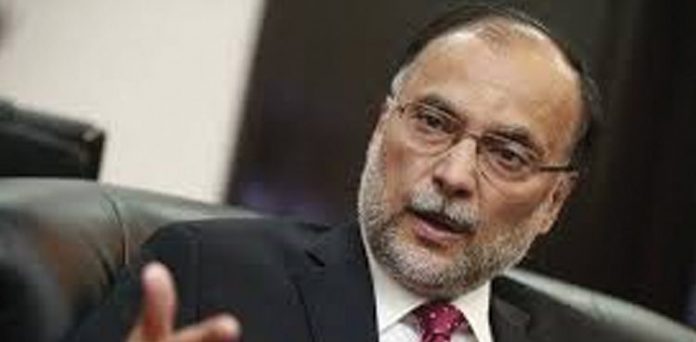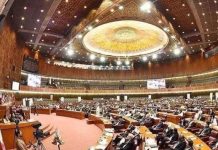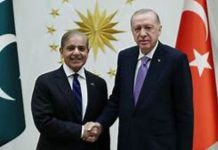ISLAMABAD, Sep 25 (DNA):Minister for Planning, Development and Special Initiatives Professor Ahsan Iqbal on Wednesday demonstrated great commitment to purging the country of extremist and terrorist elements, as the PML-N government had successfully done in the past.
“As a result of a lack of continuity in policies, we saw the reemergence of these networks [of terrorism]. . . The policy [during the PTI tenure] adopted of taking back some elements from Afghanistan has again posed a challenge, but now the PML-N government is determined to fight, defeat and eliminate them like we did before,” he said.
The minister expressed these views while speaking at the inaugural session of a daylong international conference on ‘Countering Terrorism in Pakistan: Progress and the Path Forward,’ organized by Bahria University in collaboration with the Pakistan Institute for Conflict and Security Studies (PICSS) here.
Addressing the conference participants, the minister said the fight against terrorism was far from over, as several key challenges continued to impede the national path to peace and stability.
“Terrorism is no longer confined to insurgencies or large militant groups. The rise of lone wolf attacks, along with cyber radicalization and the use of social media for extremist recruitment, have transformed the landscape,” he said.
Ahsan Iqbal said a recent report showed that 80 percent of terrorist organizations now use digital platforms to recruit, communicate and radicalize individuals. “This presents a new front in the fight against terrorism, requiring us to invest in cybersecurity and digital literacy.”
In a message to the youth, the minister advised them to become aware of the potential dangers of the present times, specifically ‘misinformation.’
He mentioned that the World Economic Forum (WEF) had recently declared ‘misinformation’ the biggest risk the world was confronting in the modern era of digitalization.
He described fake news and misinformation as ‘a new weapon’ for destabilization, creating chaos and fanning extremist ideologies in society, adding, “We have to guard against misinformation.”
The minister emphasized that not everything that appeared on social media could be taken as truth and that youth must develop the cognitive ability to verify the authenticity of the information they receive.
“Now, data analytics with social media have become a very lethal weapon. You can be manipulated without knowing who is manipulating you and in which direction.”
He said any message that fostered hate must be rejected, as it was the starting point of extremism that could lead to terrorism. “This goes full cycle.”
Recalling a conference on terrorism he attended in France, the minister shared that a German professor viewed humans as the best forms of creation saying, “If two viruses, i.e., hate and prejudice, are injected into the human computers, the human mind loses its rationality and turns individuals into beasts that see the world through the lens of their own bias.”
Ahsan Iqbal said if minds become tinted with hate and prejudice, individuals began to see the world colored through the prism of their own biases, emphasizing, “So it is very important that if we are to maintain our rationality and sobriety, we must not let these viruses enter our minds.”
The minister noted that military and law enforcement actions remained crucial, but alone were insufficient on their own. He stressed the need to go beyond the battlefield to counter terrorism by addressing the root causes of extremism, building societal resilience, and preventing future radicalization.
“As outlined in the national internal security policy, the battle against extremism and terrorism must be fought in the ideological domain. We need to invest in curriculum reforms that promote critical thinking, tolerance, and pluralism,” he added.
He also emphasized the importance of recognizing community-based counter-terrorism strategies, adding, “Local communities and religious leaders must be empowered to counter radicalization at the grassroots level. The use of mosques, schools and media to promote messages of peace, tolerance and national unity is critical.”
He mentioned that programs like Paigham-e-Pakistan serve as powerful tools in this regard, providing a platform for Islamic scholars to condemn extremism and terrorism.
The minister suggested measures for the rehabilitation and reintegration of ‘former extremists,’ advocating for their transformation into useful members of society through vocational training after psychological counseling.
He also called for strengthening cybersecurity infrastructure and training law enforcement personnel to counter cyber radicalization using modern techniques.
“Public-private partnerships with tech companies are essential for monitoring and removing extremist content from digital platforms while ensuring that legal frameworks keep pace with emerging cyber threats,” he remarked.

















